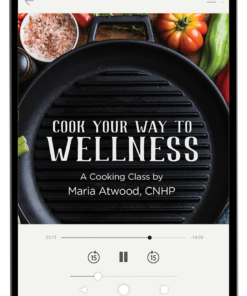By the time this article goes public, some positive changes will have been made for getting our nation back to normal—or, at the very least, a semblance of normality. It is now late May, and the warm spring weather is more than welcome after the harsh reality of everything that transpired over the cold winter months and then into early spring. As I sit on my deck with an iced glass of mineral water, I’m contemplating all of the experiences I never imagined I’d see in my lifetime, during what will forever be known as the national lockdown.
In this quiet moment, I think about how my daily life has changed. More importantly, I ask myself what lessons I learned and what I can suggest to my readers about going forward. Before we encounter another national disaster, we must learn how to weather it with a new mindset and some basic preparations.
Images Forever Etched in Our Minds
One of the more striking images for me were of the many fancy SUVs and expensive cars lining up to get boxes full of low-nutrient SAD (standard American diet) foods. But even more heartbreaking were the images of nursing homes where our aging loved ones were taking the brunt of the horror—mostly because governors did not act swiftly to move the elderly from their nursing homes to newly built hospitals or send them out to two of the largest medical ships the United States has. (Florida seemed to be the one state that got it right!) It honestly shook me to the very core of my being.
Then there were the horrific images of mile-long lines of people trying to get unemployment checks. And to make matters worse, many states were totally unprepared to handle the volume of requests because of their old and dated computer systems. Oh, and how could we forget the hardworking, self-sufficient American business owners jailed for reopening early or who had their licenses temporarily revoked? Last but not least, when New York was provided with billions of dollars and yet much of the support that was given to them was sadly never used. Yes, dear taxpayer, you and I paid dearly for this monumental disaster!
To Sum It All Up
Although I could write many more pages about these sad experiences, in my humble opinion only one word even comes close to describing what America has been through in the last few months: surreal. This word describes a strange, unreal, or dream-like state of being.
Lessons Learned and Going Forward
Benjamin Franklin is quoted as saying that “an ounce of prevention is worth a pound of cure.” Our dear patriot gave us the simplest way to understand that we should never have to suffer severe want during a time of crisis. Below are a few of the most important basic preparedness recommendations, which unfortunately most of us don’t make a serious effort to accomplish. Even close friends and family members of mine were simply not prepared.
I am sure that many Americans have already figured it out for themselves, but for those who haven’t, I will list them in order of their importance. These are valuable recommendations for people who live paycheck to paycheck at a daily job. Even people who are already on unemployment or temporary assistance may benefit from these lessons in some small way now, or apply them in the future.
Two Critical Recommendations
Save your pennies: Above all, the most important thing in terms of preparation is to start saving what you can so that you have enough money to pay your rent or mortgage plus utilities for at least three to four months. In most cases, between six to ten thousand dollars would be enough to carry most families through hard times. It is critical to have a safe place to shelter in a time of crisis. If this isn’t the case for you, start looking immediately for a more permanent, affordable home.
Stock up on nutrient dense foods: This can definitely make any time you spend in a crisis at least a bit happier and healthier. Stocking up on nutrient dense foods also includes whole food supplements such as Standard Process that are concentrated whole foods.
I would also like to share a few ways you can start preparing for a crisis that I wrote about in my blog post “Hard Times Are a Comin.” I offer a total of eight preparedness recommendations in the article, including supplements and many other things you may want to consider. I recommend reading the blog post in full, but here is a partial list:
Simple Preparedness Plan
- Get out of debt: Resolve to write a budget and live with it. This will help you become debt free as quickly as possible, with the exception of your mortgage. The best way to save for a rainy day is to ask yourself—before you make any expenditure, no matter how small—if it’s something you really need, or if it’s something you just want. While you are in debt-paying mode, “wants” should be few and far between.
- Look at your saleable assets: Make a list of every unnecessary asset you can sell. Use the proceeds as seed money, first and foremost to pay off debt, and then to begin building your savings to carry you through a few crucial non-earning months.
- Take stock of medications, remedies, and sundries: Make a list of medications, remedies, and other sundries (toilet paper, soap, diapers, etc.) that are relevant to your health and the needs of your family. I suggest you start buying one or two extra items that you use on a daily basis. Take notice of what you’ve most needed at the end of the year and adjust your list accordingly. Stockpiling too many things you don’t presently need may be money you could have used to pay off debt.
- Keep a small quantity of food and supplements you use most on hand (but not in bulk): Stockpiling a huge food quantity of food is a big mistake. In this plan, I don’t recommend storing any grains, legumes, rice, salt, and other foods in bulk. I know, I know—probably all of my frugal acquaintances, and many readers, are thinking, What? She’s got it all wrong!
Nevertheless, buying and storing small quantities of the foods and supplements you use most means you can pack and carry them easily should you need go to another place.
Another major problem I see with people preparing for hard times is buying cheap cans of sale items, discontinued items, or regular canned meats (with some exceptions—see the list below). While canned fruits or vegetables are okay, most cheap canned items, and possibly long-term MRE packets, don’t provide the nutrient dense value we get from whole foods. You’ll need those nutrients to keep you healthy as you deal with the stress levels that accompany even small disasters.
In this case, less is more when it comes to preventing colds, infections, and other illnesses that could be avoided by storing only the best of the best. Is it more expensive? Not if you choose carefully and make a good deal of food at home, both to eat in a disaster and as part of a daily diet. A small amount of highly nutrient dense foods is far better than lots of cheap canned foods. See more food suggestions below.
Recommended Essential Nutrient Dense Survival Foods
No matter how much effort you put into your plan, what really counts is how nutritious the food you nourish your body with is. Learning to make these foods and using them in your daily life now means you’ll be prepared when and if you ever need these skills to survive. Maybe I should also add, be sure to have a good supply of toilet paper. (Smile)
- Dried beef, buffalo, or deer jerky (see my Cook Your Way to Wellness DVD).
- Pemmican made with beef tallow.
- Coconut oil in safe, lightweight plastic bottles.
- Fermented cod liver oil-butter blend or Tuna Omega-3 Oil from Standard Process.
- Canned meats recommended in the Weston A. Price Shopping Guide.
- Fermented veggies, fruits, and crispy nuts (see Cook Your Way to Wellness).
- Homemade granola (see Nourishing Traditions)
- Sundries like quality sea salt, spices, etc.
- Food sealing machine for home use.
Recommended Essential Supplements
Standard Process whole food supplements are just as important as the food you store. These are two of my favorites:
- Cyrofood Powder: A complete whole food multivitamin supplement.
- Calcium Lactate Powder: A powerful combination of calcium/magnesium. See my blog post “Let’s Take a Closer Look at Calcium” to learn why it’s so important.
Sleep and Mental Unrest
This is very important since we naturally lose track of the normal pace of life anytime we’re under any stress. Shock, worry, anxiety, and especially sleeplessness are all symptoms of a brain on overload. In writing many blog posts on this issue, I have found that in the very best remedy is to start using adaptogens.
According to Healthline.com, “Adaptogens are herbal pharmaceuticals. They work to counteract the effects of stress in the body. Stress causes very real physical changes in the body, including harming the neurological, endocrine, and immune systems. Adaptogens have stimulant properties that help counteract those harmful effects.”
Rhodiola & Schisandra from MediHerb contains two of my favorite adaptogens for this purpose. According to MediHerb, it is designed to support healthy function of the body’s natural processes, while providing vital energy. Its unique formula may help:
- Maintain feelings of general well-being when experiencing temporary stress
- Support healthy cognitive function
- Support healthy liver and nervous system function
I highly recommend that you find or consult with your Standard Process holistic practitioner who carries MediHerb to see if this fine product is for you. Remember, all Standard Process or MediHerb products available on the internet are black market and cannot be trusted to be effective. Only an authorized practitioner knows to store these products in ideal conditions and not in hot warehouses.
[xyz-ihs snippet=”Begin-Authors-Note”]Afterthoughts from the Traditional Cook
I hope you enjoy a little pandemic humor from Adley Stump.
[xyz-ihs snippet=”End-Authors-Note”]Disclaimer from Maria Atwood, CNHP: I am a Certified Natural Health Professional, CNHP, not a medical doctor. I do not diagnose, prescribe for, treat, or claim to prevent, mitigate, or cure any human diseases. Please see your medical doctor or health practitioner prior to following any recommendations I make in my blog posts or on my website.
Images from iStock/Nadya So (main), ajr_images (man with toilet paper), AlexLMX (quarantine Earth), FamVeld (mother working).





